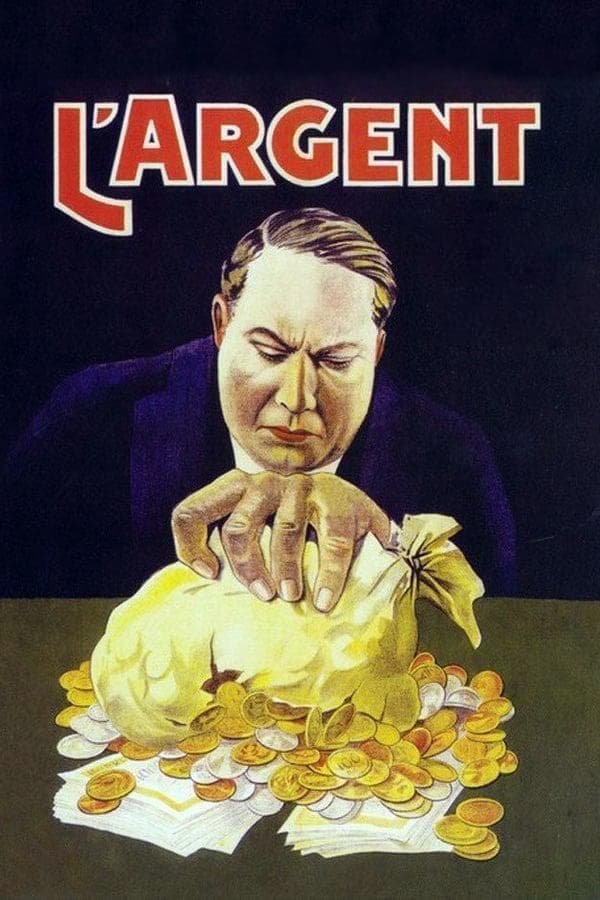Film Review: L'Argent (Money, 1928)

Some films can straddle the complexities of their time. One example can be found in L’Argent, 1928 French silent drama directed by Marcel L’Herbier. Crafted amidst the transition from silent to sound cinema, the film's timing was both opportune and challenging. The narrative's focus on financial market manipulation, although prescient given the impending Wall Street crash, faced the obstacle of being a silent film in an era where audiences clamoured for sound.
The film is based on Émile Zola's eponymous 1891 novel, an epic work that delved into the intricate politics and economics of the French Second Empire. However, the script by L’Herbier and Arthur Bernède opted for a simplified plot set in 1920s France, a decision that stirred controversy among Zola purists. The main character, played by Pierre Alcover, is Nicolas Saccard, ruthless Parisian banker whose Banque Universelle is being subject of hostile takeover by his rival Alphonse Gunderman (played by Alfred Abel). In order to stave off financial ruin, Saccard plots scheme involving oil deposits in French Guyana and recruits Captain Jacques Hamelin (played by Henry Victor), heroic aviator and inventor, who is about to cross Atlantic in an aeroplane as part of publicity stunt. During the flight Saccard opportunistically uses uncertainty of Hamelin’s fate to manipulate stocks, but also sets his sights on Hamelin’s distraught wife Line (played by Marie Glory). At the same time his former mistress Baroness Sandorf (played by Brigitte Helm) allies with Gunderman to bring Saccard down.
L'Herbier's evidently aspired to emulate the epic success of Abel Gance's Napoleon, French silent cinema masterpiece whose main star Antonin Artaud from Napoleon appears in minor role of Saccard’s secretary. Large budget was invested, supported by German studio UFA, whose stars Helm and Abel (known from Lang’s Metropolis) appeared in major roles. However, L’Herbier’s avant-garde aspirations, seen in the use of moving camera, innovative editing and other tricks, fall short of the grandeur achieved by Gance.
Visually, L'Argent shines in its lavish costumes, Art Deco interiors, and glimpses into the Jazz Age's impact on 1920s France. However, the film's excessive length, a common trait of silent classics, tests the patience of the average viewer. The melodramatic acting, while prevalent, generally lacks the captivating allure found in Brigitte Helm's portrayal of a semi-villainess.
Ultimately, L'Argent's saving grace lies in its semi-ironic conclusion, where the imprisoned protagonist hints at another fraudulent endeavour. This touch of irony adds depth to the film's narrative, offering a nuanced reflection on the cyclical nature of greed and deception. Despite its flaws, L'Argent stands as a testament to L'Herbier's ambition and the artistic experimentation of the silent film era.
RATING: 6/10 (++)
Blog in Croatian https://draxblog.com
Blog in English https://draxreview.wordpress.com/
InLeo blog https://inleo.io/@drax.leo
Hiveonboard: https://hiveonboard.com?ref=drax
Rising Star game: https://www.risingstargame.com?referrer=drax
1Inch: https://1inch.exchange/#/r/0x83823d8CCB74F828148258BB4457642124b1328e
BTC donations: 1EWxiMiP6iiG9rger3NuUSd6HByaxQWafG
ETH donations: 0xB305F144323b99e6f8b1d66f5D7DE78B498C32A7
Posted using CineTV